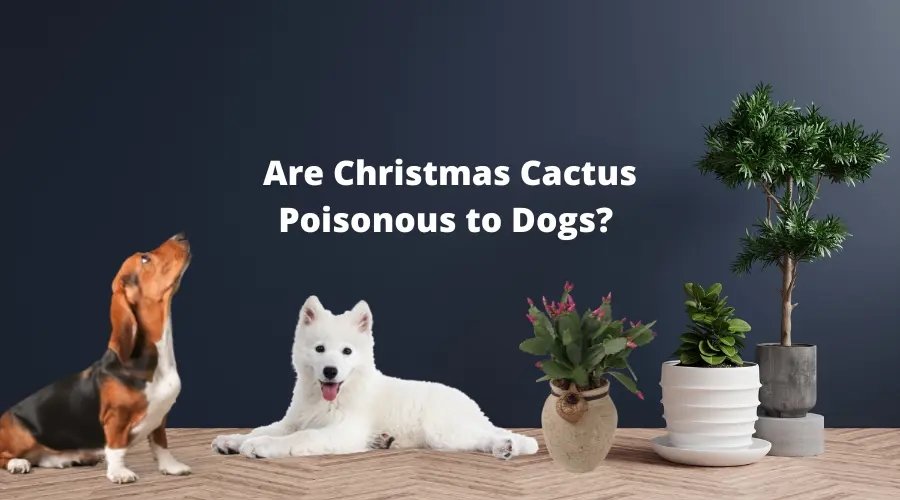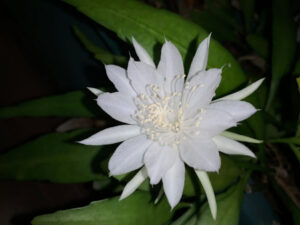As the festive season approaches, many pet owners find themselves adorned with vibrant decorations, one of which is the Christmas cactus. This delightful plant, with its striking blooms, brightens up any space. But it raises an interesting question for those with canine companions: Is the Christmas cactus poisonous to dogs? This article delves into the intricacies of this seemingly innocuous plant and what pet owners should be aware of.
Understanding the botanical makeup of the Christmas cactus can help clarify any concerns surrounding its toxicity. This distinctive plant, scientifically known as *Schlumbergera*, is native to the tropical rainforests of Brazil. Unlike its desert-dwelling relatives, the Christmas cactus thrives in a humid environment, often growing on trees rather than in the ground. Its beautiful flowers may bring joy to many, but does it hold any hidden dangers for dogs?
In exploring the toxicity implications, the first step is to examine the key components of the Christmas cactus. Fortunately, the good news for dog owners is that this plant is considered non-toxic to pets, including dogs. According to various veterinary sources, ingestion of the Christmas cactus is unlikely to cause severe adverse reactions in canines. This is a notable relief for those who might worry about their furry friends nibbling on their holiday décor.
Nonetheless, it’s essential to consider the concept of “non-toxic” carefully. While the Christmas cactus may not be lethal or severely harmful, that doesn’t imply it’s entirely harmless. Dogs are inquisitive creatures, prone to investigating new items through taste. This inquisitiveness could lead to gastrointestinal discomfort if they consume part of the plant. Symptoms of mild ingestion might include vomiting, diarrhea, or a brief period of lethargy. Therefore, even though serious toxicity is a myth, pet owners should still exercise caution.
Another crucial factor affecting your dog’s safety around Christmas cacti is the plant’s physical characteristics. The Christmas cactus has segmented, flat leaves with edges that can be somewhat serrated. If a dog were to chew on these leaves, it could potentially lead to oral irritation or injury. Soft and succulent, the plant does not pose the same dangers as spiny cacti, but the texture could still provoke discomfort or injury if ingested.
Pet owners must also consider the broader environment in which the Christmas cactus resides. It’s common for these plants to be potted in soil that may contain fertilizers or additives, which could be harmful if ingested. Chemical fertilizers can lead to severe reactions in dogs, such as lethargy, vomiting, and more severe gastrointestinal distress. Hence, if a dog were to dig into the pot and consume the soil or any fertilizer, it could result in toxicity symptoms that are unrelated to the Christmas cactus itself.
Preventive measures are imperative for ensuring the safety of both the plant and your pet. One suggestion is to place the Christmas cactus in an area that is difficult for your dog to access. This could mean putting the plant on a high shelf, in a hanging planter, or behind a barrier. By limiting your dog’s access, you not only protect the plant but also reduce the chances of any unwanted nibbling and subsequent discomfort for your pet.
Another consideration for pet owners is the potential for allergies or sensitivities. While the Christmas cactus is categorized as non-toxic, individual dogs may have unique reactions to certain plants. Some dogs are more prone to allergies, leading to symptoms like itching, swelling, or respiratory issues after interacting with a new plant. Observing your pet’s responses when introducing a Christmas cactus into the home is vital. If any signs of allergy arise, it’s prudent to consult a veterinarian.
When it comes to festive preparations, create a joyful and safe environment for your canine companions. Consider alternative decorations that are pet-friendly, such as non-toxic ornaments, or use the Christmas cactus in areas already restricted from your dog’s reach. If your pet is particularly mischievous, opting for artificial plants can eliminate any risk altogether, providing peace of mind without sacrificing holiday cheer.
In summary, the Christmas cactus is a beautiful addition to holiday décor and, thankfully, poses minimal risk to dogs. While they are non-toxic, pet owners must remain vigilant about their dog’s behavior and the surrounding environment. Protect your pup by placing the plant out of reach and being mindful of any possible allergic reactions. The festive season should be enjoyable for both pets and their owners, and with a few precautions, it certainly can be.




Leave a Comment